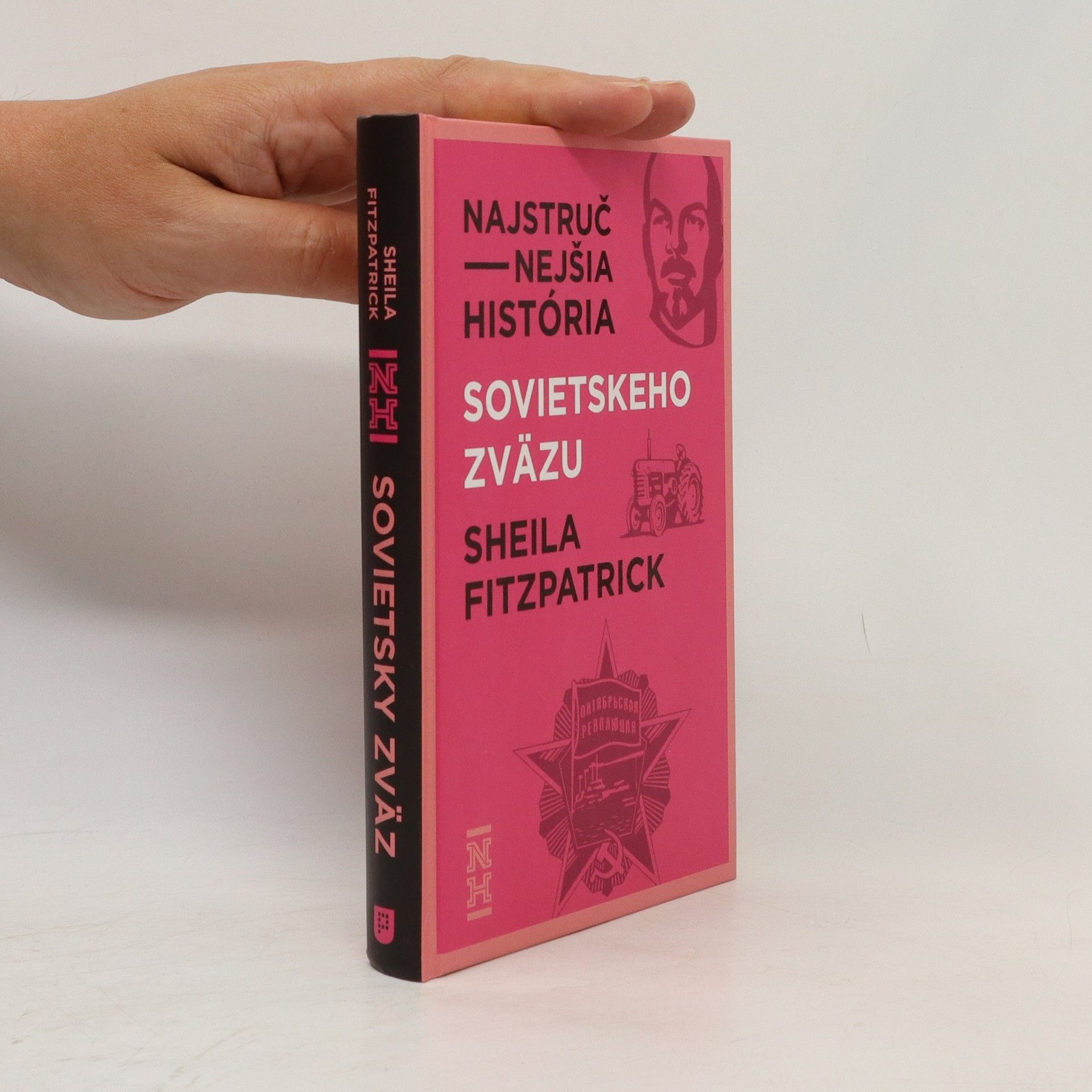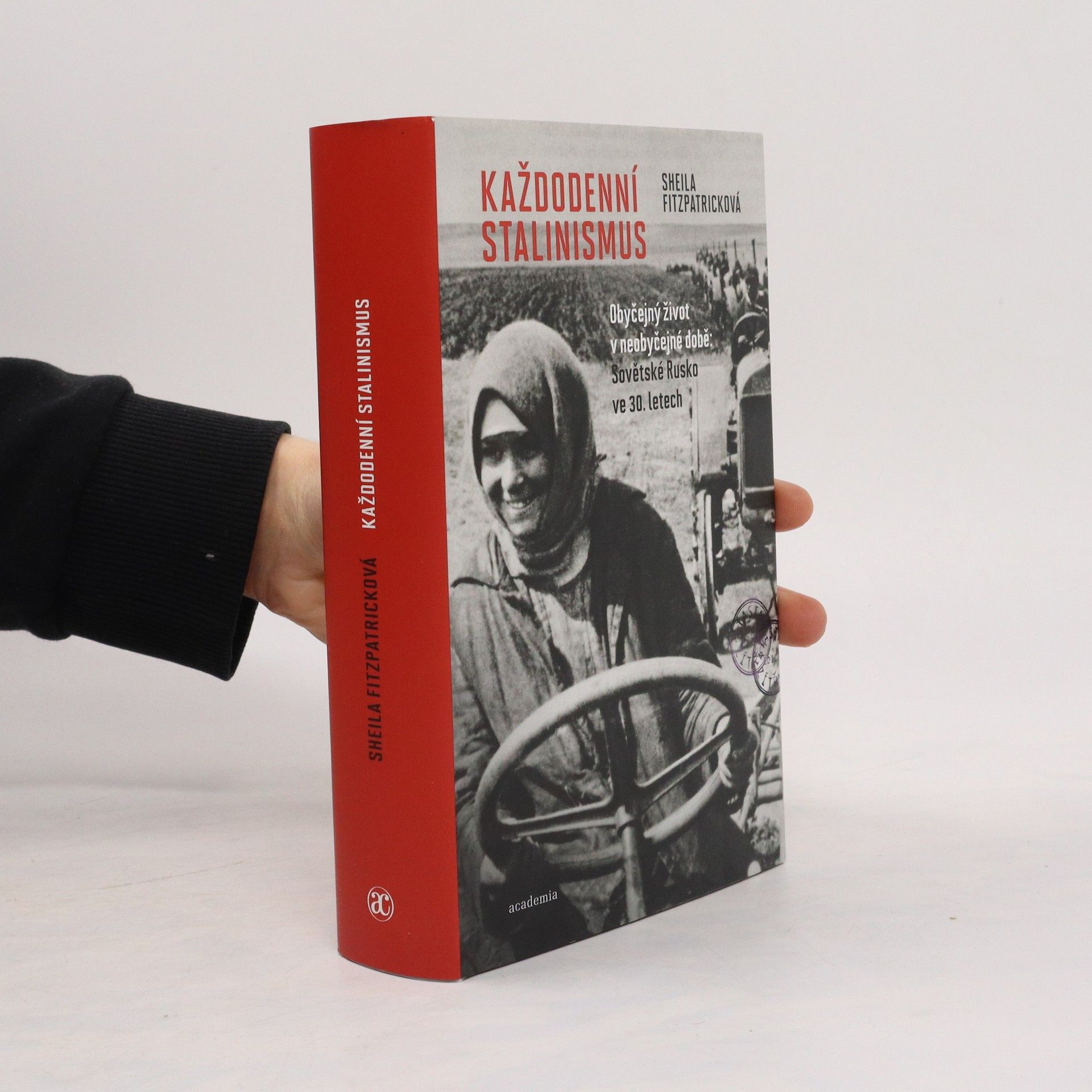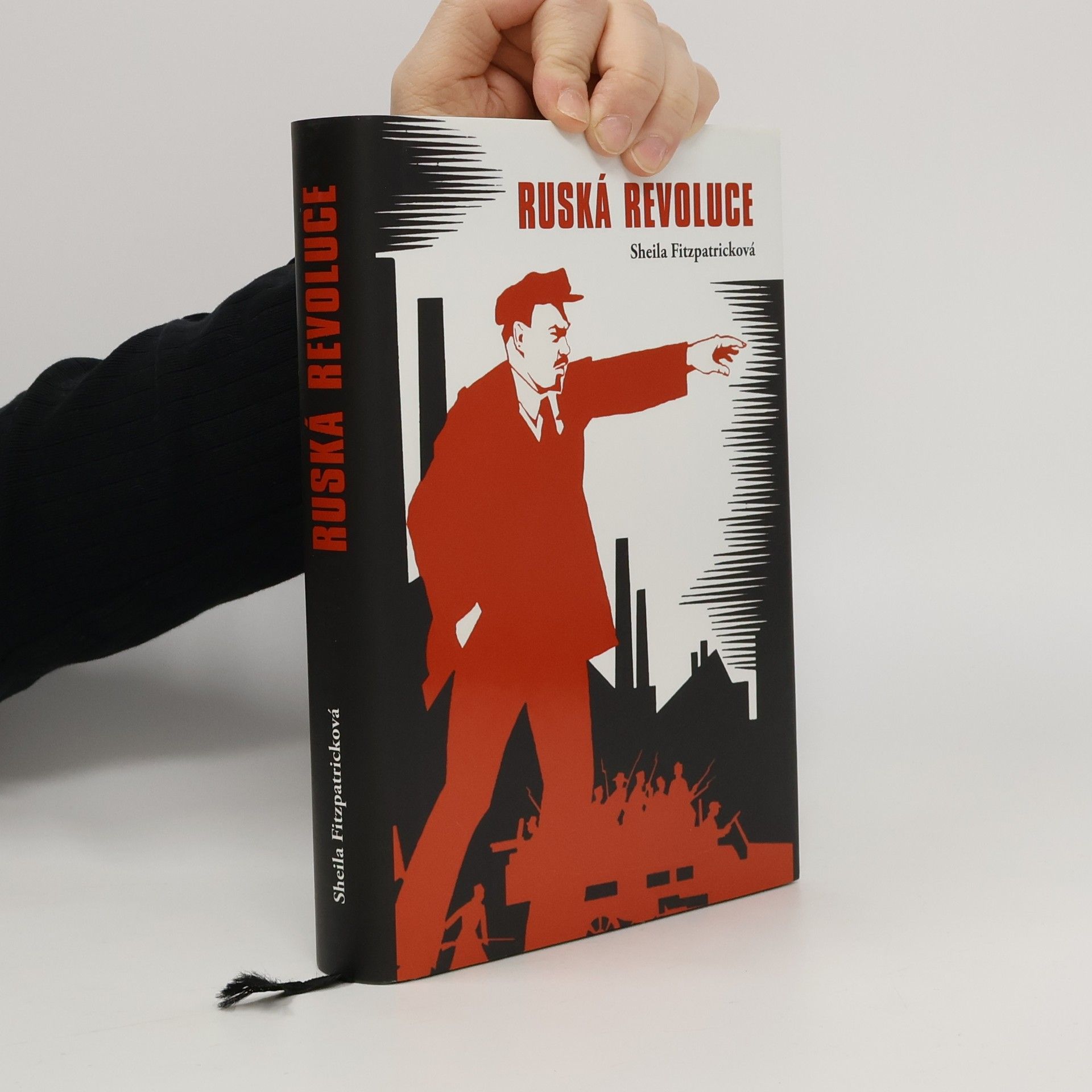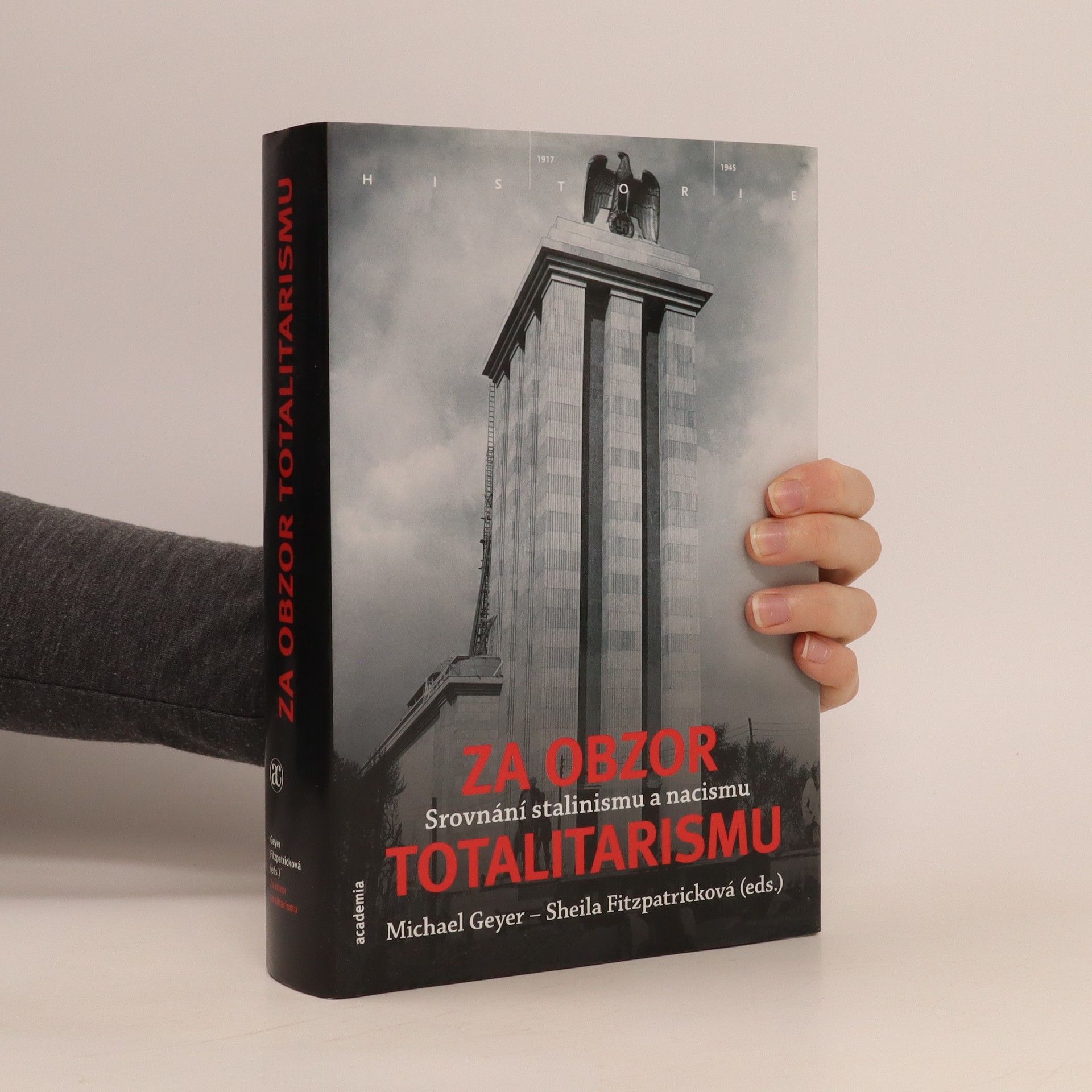The book explores the experiences of approximately half a million Soviet "displaced persons" after World War II, focusing on their struggles and aspirations for resettlement amid the escalating Cold War tensions. It delves into the personal stories of these ordinary individuals, highlighting their resilience and the complexities of navigating a world marked by political upheaval and uncertainty. Through their journeys, the narrative sheds light on the broader historical context and the impact of geopolitics on human lives.
Sheila Fitzpatrick Book order (chronological)
Sheila Fitzpatrick is an Australian-American historian whose work delves into the social and cultural history of the Stalinist Soviet Union. She examines how social identity and daily life shaped this era, positing that the political culture of Stalinism may have paradoxically achieved democratic revolutionary aims. A leading figure among the second generation of "revisionist historians," Fitzpatrick approaches Soviet history from a distinct "from below" perspective. Her scholarship seeks to uncover social processes independent of state intervention, offering nuanced insights beyond previously dominant models.




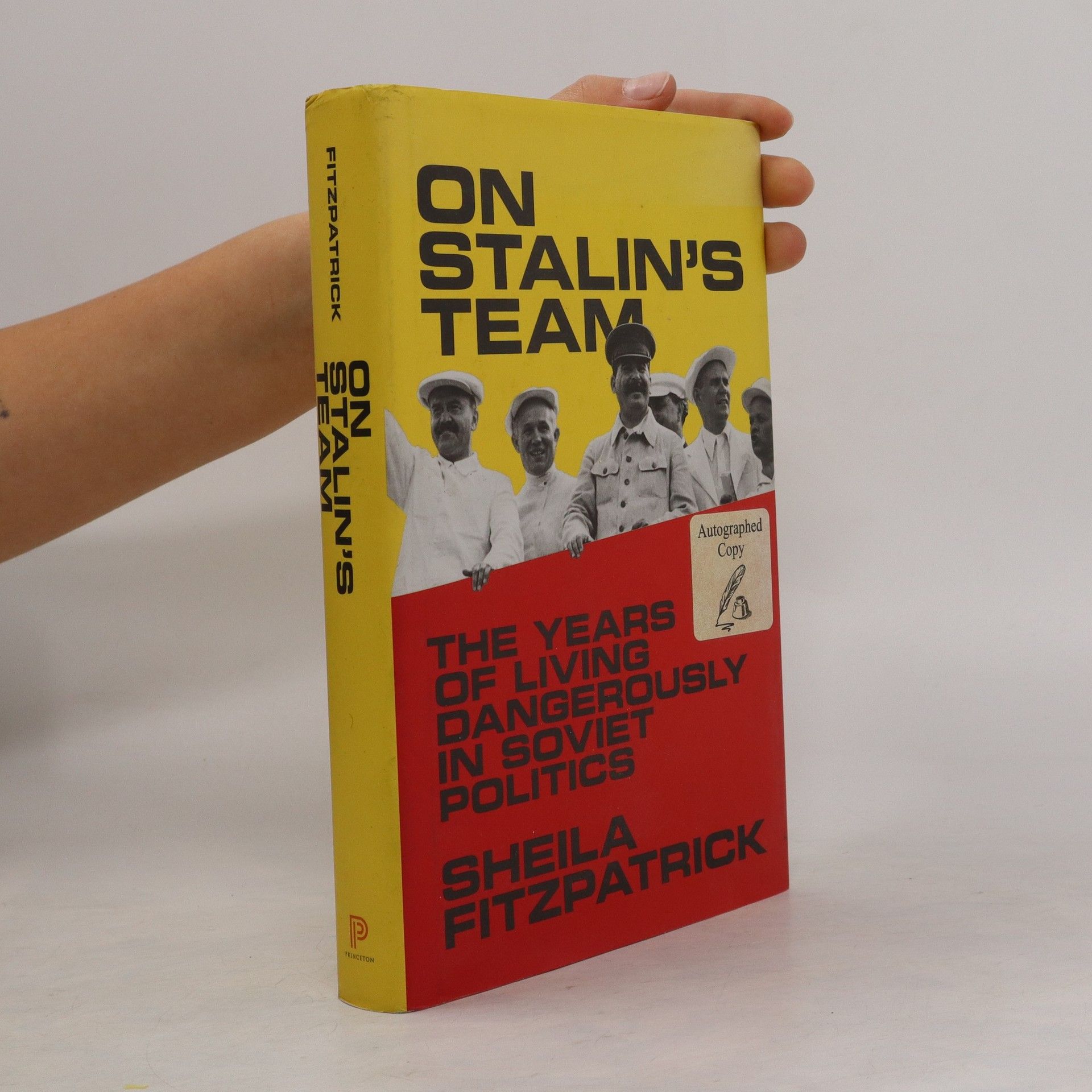
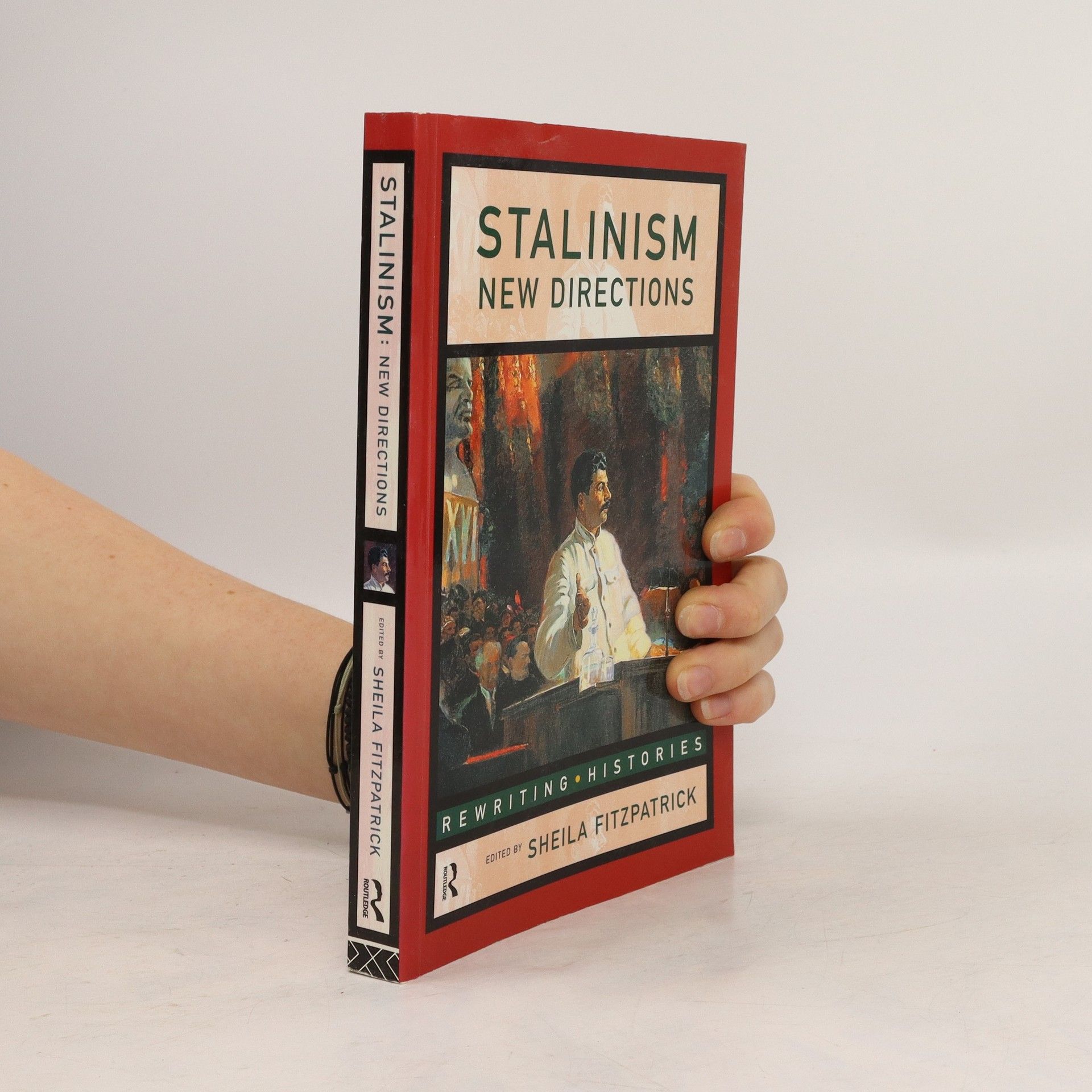

Najstručnejšia história Sovietskeho zväzu
- 192 pages
- 7 hours of reading
ZSSR – krajina, ktorá sa zrodila z náhody a tak aj zanikla. V roku 1917 sa boľševickí revolucionári dostali k moci vo vojnou zničenej Ruskej ríši spôsobom, ktorý sa vymykal všetkýmpredpovediam– vrátane ich vlastných. Ani nie o storočie neskôr, v roku 1991, sa Sovietsky zväz rozpadol rovnako náhodne, ako vznikol. Celé desaťročia medzi tým boli ľudia svedkami drámy epického rozsahu – chaosu a nádejí revolúcie, hladomorov a čistiek, ťažko vybojovaného víťazstva v najničivejšej vojne v dejinách a celosvetového geopolitického konfliktu –, to všetko previazané so snom o vybudovaní lepšej spoločnosti. Táto kniha je zaujímavým a objektívnym výkladom týchto komplexných dejín – od Lenina a vzniku Sovietskeho zväzu cez Stalina a vzostupu ZSSR medzi svetové veľmoci až po Gorbačova, následný kolaps režimu a jeho „posmrtný život“ v dnešnom Rusku, ktoré autorka napriek stručnosti podáva so živými podrobnosťami, pútavo a s dôvtipom. Skúma tiež nástup oligarchov, obrodu pravoslávnej cirkvi, fascinujúcu postavu Vladimíra Putina a uvažuje nad budúcnosťou komunizmu – kto ešte stále obdivuje Marxa a Lenina? A aké ponaučenia si zo sovietskeho zlyhania vzala iná superveľmoc – Čína?
Chronicles the Soviet Age - its rise, reign, and unexpected fall, as well as its afterlife in today's Russia
The narrative delves into the complexities of the early Russian-Australian community, highlighting the tensions between anti-Communist sentiments and admiration for Soviet accomplishments. It explores the efforts of Australian-Soviet intelligence agencies to monitor and sway this diverse group, capturing the conflicting aspirations of those longing for liberation versus those contemplating a return to their homeland. Through this lens, the book provides a nuanced understanding of identity, loyalty, and the geopolitical influences shaping the community.
Ve Stalinově týmu : roky riskantního života v sovětské politice
- 384 pages
- 14 hours of reading
Nejnovější kniha Sheily Fitzpatrickové je pozoruhodnou sondou do nejvyšších pater sovětské politiky 20. až počátku 50. let 20. století. Na rozdíl od většiny prací, které se soustředí na osobu sovětského diktátora J. V. Stalina, se Fitzpatricková zaměřila na jeho nejbližší spolupracovníky. Prostřednictvím dobové korespondence, úředních materiálů i četných vzpomínek a pamětí ukazuje, že za Stalinem stála skupina věrných, kteří tvořili nebývale efektivní tým až do Stalinovy smrti v roce 1953. Do Stalinova týmu v průběhu třiceti let patřili například Molotov, Malenkov, Kaganovič, Vorošilov, Berija, Andrejev či Chruščov. V důsledku politického teroru, jenž se nevyhýbal ani členům týmu a jejich rodinám, se jeho složení mnohokrát změnilo. Někdy tým sloužil k přenášení zodpovědnosti ze Stalina na kolektiv, jindy si na svých spolupracovnících sovětský despota testoval své nápady. Mnohokrát však došlo i k tomu, že pro nevoli členů týmu Stalin svá rozhodnutí zrušil. V týmu podle Fitzpatrickové panovala určitá hierarchie, jež odrážela proměnlivou politickou moc konkrétních osob. Autorka analyzuje fungování týmu a konstruuje zcela nový obraz Stalina v jeho pracovním i rodinném prostředí.
Kniha, na níž autorka pracovala přes dvacet let, je zásadním příspěvkem do diskuse o stalinistickém Rusku, který nabourává totalitní paradigma. Svým důrazem na interakce mezi režimem a různými společenskými složkami kniha představuje obrat v sovětské historiografii. Nesoustředí se na Stalina a jeho brutalitu, ale na klíčové společenské koncepce a témata. Fitzpatricková tvrdí, že životní podmínky ve stalinistickém Sovětském svazu vytvořily nový typ občana, kterého nazývá Homo sovieticus a prostřednictvím jeho příběhů pak podrobně vykresluje atmosféru každodenního městského života a upozorňuje, že stalinský režim neznamenal pouze násilí, ale šlo o režim s vlastní politickou kulturou, který obrovskému segmentu společnosti přinesl nové možnosti a sociální mobilitu.
Ruská revoluce
- 280 pages
- 10 hours of reading
Ruská revoluce měla zásadní vliv na dvacáté století. Po zhroucení sovětského režimu a zpřístupnění archivů je nyní možné získat odstup a vidět tuto událost v celé její šíři. Špičkové dílo nabízí strhující příběh marxistické revoluce, jejímž cílem bylo změnit svět, ale místo toho přinesla obrovské utrpení ruskému lidu. Autorka zasvěceně popisuje revoluce z února a října 1917, občanskou válku, Novou ekonomickou politiku, Stalinovu „revoluci shora“, pětileté plány a velké čistky jako jednotlivé etapy revoluce trvající dvacet let. Kniha obsahuje údaje z dosud nedostupných archivů a významné ruské publikace, včetně pamětí Vjačeslava Molotova. V kapitole o vybrané bibliografii autorka zmiňuje klíčové odborné práce a upozorňuje na rostoucí zájem západních historiků o tuto revoluci v posledních letech. „Jde o hutnou, zasvěcenou a vysoce originální interpretaci Ruské revoluce jako procesu sociální transformace od roku 1917 do 1937 … Nový pohled, který ovlivní diskuse o tomto historickém jevu na dlouhou dobu.“ Sheila Fitzpatrick, emeritní profesorka moderních dějin Ruska, je autorkou mnoha publikací a bývalou prezidentkou Americké asociace na podporu slovanských studií.
On Stalin's Team
- 364 pages
- 13 hours of reading
The first chronicle of Stalin's inner political and social circle―from a leading Soviet historianStalin was the unchallenged dictator of the Soviet Union for so long that most historians have dismissed the officials surrounding him as mere yes-men and political window dressing. On Stalin's Team overturns this view, revealing that behind Stalin was a group of loyal men who formed a remarkably effective team with him from the late 1920s until his death in 1953. Drawing on extensive original research, Sheila Fitzpatrick provides the first in-depth account of this inner circle and their families. She vividly describes how these dedicated comrades-in-arms not only worked closely with Stalin, but also constituted his social circle. Stalin's team included the wily security chief Beria; Andreev, who traveled to provincial purges while listening to Beethoven on a portable gramophone; and Khrushchev, who finally disbanded the team four years after Stalin's death. Taking readers from the cataclysms of the Great Purges and World War II to the paranoia of Stalin's final years, On Stalin's Team paints an entirely new picture of Stalin within his milieu―one that transforms our understanding of how the Soviet Union was ruled during much of its existence.
Za obzor totalitarismu: Srovnání stalinismu a nacismu
- 688 pages
- 25 hours of reading
V esejích, které psali společně specialisté na sovětskou a německou historii, se autoři pokoušejí znovu promyslet a přepracovat podstatu obou systémů - stalinismu a nacismu. Spolu s tím usilují o vytvoření nové metodologie pro studium obou režimů, která by překonala dnes již zastaralé přístupy z minulého století, týkající se teorie totalitarismu, ideologie či osobnosti. Komparativní způsob práce nabízí prostředky k zjištění historicity obou těchto režimů, vymykajících se dosavadní zkušenosti, a problematického odkazu, který po sobě zanechaly. Po skončení studené války a zániku SSSR již evropští badatelé nejsou dále omezováni politickými hledisky, která postihovala výzkum a podmiňovala interpretaci. Navíc se otevřel přístup k řadě nedostupných archivů. Je vhodný čas pro vytvoření nového pohledu na obě podivuhodné diktatury 20. století a novému promyšlení interpretací totalitních režimů, včetně spojitého vývoje socialismu a nacionalismu v evropském, resp. globálním kontextu.
The Russian Revolution significantly shaped the twentieth century. With the collapse of the Soviet regime and the opening of its archives, a comprehensive view of this pivotal event is now possible. This volume narrates the compelling story of a Marxist revolution aimed at global transformation, which ultimately inflicted great suffering on the Russian populace, mirroring the fate of the French Revolution by turning against its own leaders. The author provides detailed accounts of the February and October Revolutions of 1917, the Civil War, the NEP period, Stalin's "revolution from above," the Five Year Plans, and the Great Purges, framing these as distinct episodes within a twenty-year revolutionary process. Utilizing previously inaccessible archival data, the book also references significant recent Russian publications, including the memoirs of Vyacheslav Molotov, a key figure in Soviet politics. The author, a recognized expert in Soviet history, includes a bibliography that highlights crucial recent scholarship, guiding readers through the expanding Western research on the Russian Revolution from the past decade. This third edition integrates newly available Soviet archival material and the latest research to present an authoritative and concise account of this critical event in modern history.
